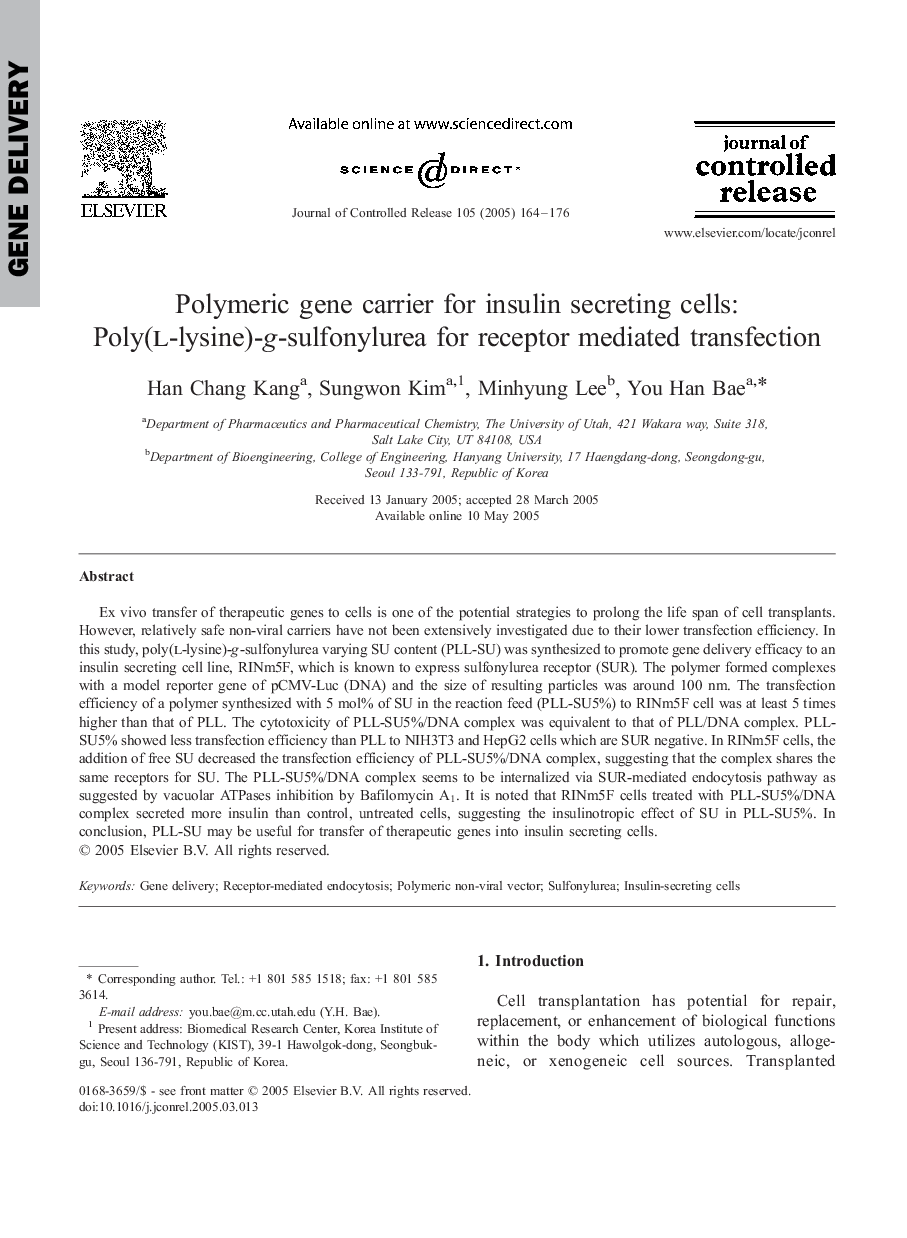| Article ID | Journal | Published Year | Pages | File Type |
|---|---|---|---|---|
| 9774684 | Journal of Controlled Release | 2005 | 13 Pages |
Abstract
Ex vivo transfer of therapeutic genes to cells is one of the potential strategies to prolong the life span of cell transplants. However, relatively safe non-viral carriers have not been extensively investigated due to their lower transfection efficiency. In this study, poly(l-lysine)-g-sulfonylurea varying SU content (PLL-SU) was synthesized to promote gene delivery efficacy to an insulin secreting cell line, RINm5F, which is known to express sulfonylurea receptor (SUR). The polymer formed complexes with a model reporter gene of pCMV-Luc (DNA) and the size of resulting particles was around 100 nm. The transfection efficiency of a polymer synthesized with 5 mol% of SU in the reaction feed (PLL-SU5%) to RINm5F cell was at least 5 times higher than that of PLL. The cytotoxicity of PLL-SU5%/DNA complex was equivalent to that of PLL/DNA complex. PLL-SU5% showed less transfection efficiency than PLL to NIH3T3 and HepG2 cells which are SUR negative. In RINm5F cells, the addition of free SU decreased the transfection efficiency of PLL-SU5%/DNA complex, suggesting that the complex shares the same receptors for SU. The PLL-SU5%/DNA complex seems to be internalized via SUR-mediated endocytosis pathway as suggested by vacuolar ATPases inhibition by Bafilomycin A1. It is noted that RINm5F cells treated with PLL-SU5%/DNA complex secreted more insulin than control, untreated cells, suggesting the insulinotropic effect of SU in PLL-SU5%. In conclusion, PLL-SU may be useful for transfer of therapeutic genes into insulin secreting cells.
Related Topics
Physical Sciences and Engineering
Materials Science
Biomaterials
Authors
Han Chang Kang, Sungwon Kim, Minhyung Lee, You Han Bae,
